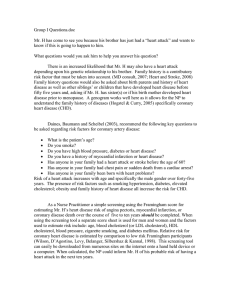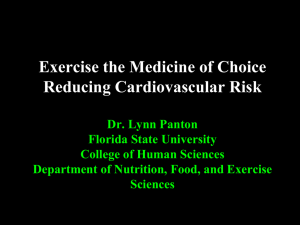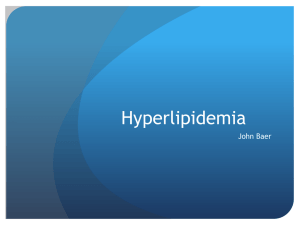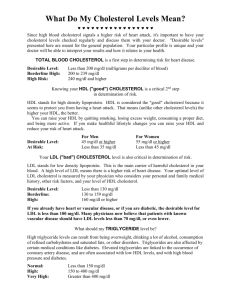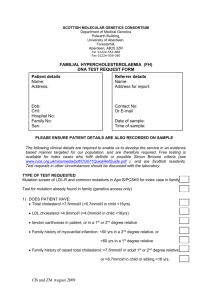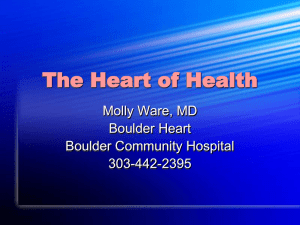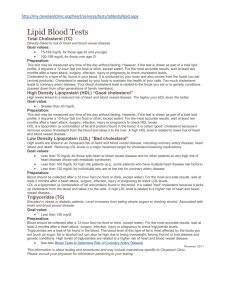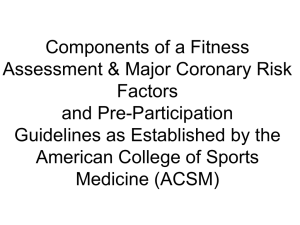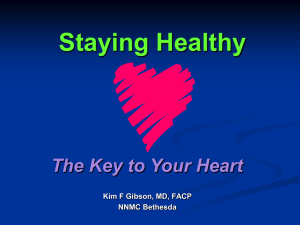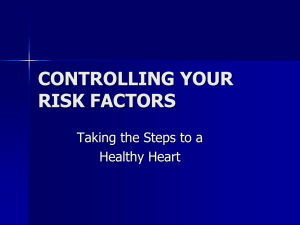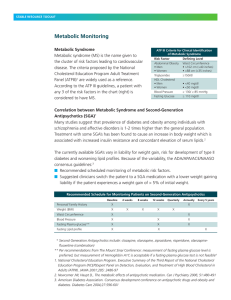Risk Factors (Positive)
advertisement
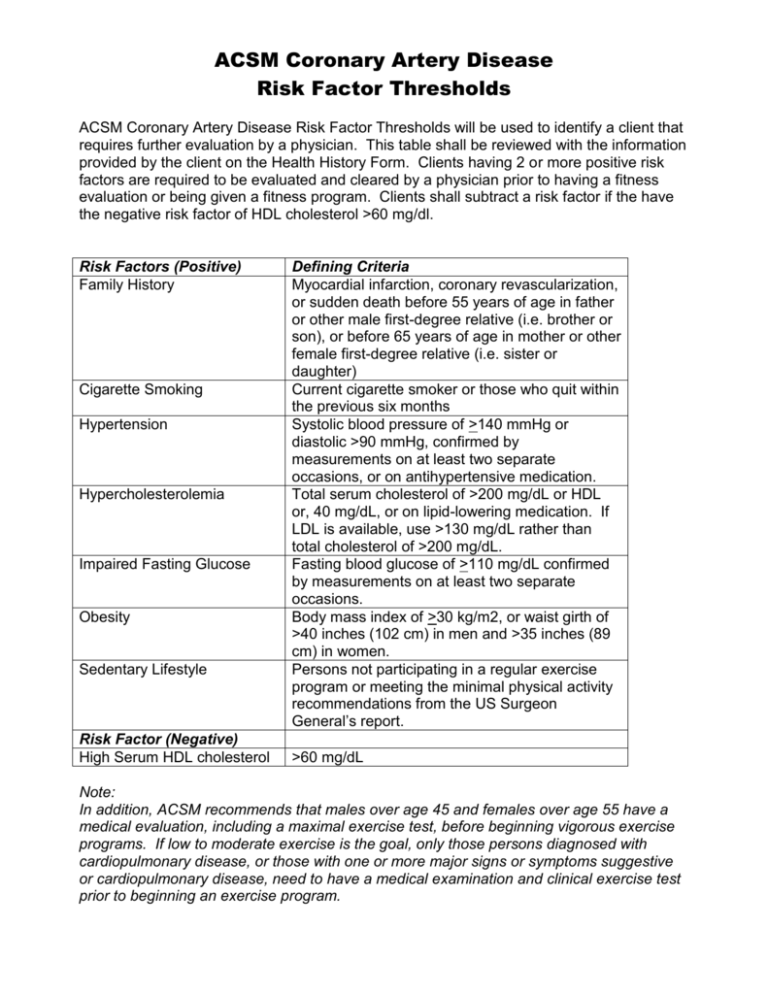
ACSM Coronary Artery Disease Risk Factor Thresholds ACSM Coronary Artery Disease Risk Factor Thresholds will be used to identify a client that requires further evaluation by a physician. This table shall be reviewed with the information provided by the client on the Health History Form. Clients having 2 or more positive risk factors are required to be evaluated and cleared by a physician prior to having a fitness evaluation or being given a fitness program. Clients shall subtract a risk factor if the have the negative risk factor of HDL cholesterol >60 mg/dl. Risk Factors (Positive) Family History Cigarette Smoking Hypertension Hypercholesterolemia Impaired Fasting Glucose Obesity Sedentary Lifestyle Risk Factor (Negative) High Serum HDL cholesterol Defining Criteria Myocardial infarction, coronary revascularization, or sudden death before 55 years of age in father or other male first-degree relative (i.e. brother or son), or before 65 years of age in mother or other female first-degree relative (i.e. sister or daughter) Current cigarette smoker or those who quit within the previous six months Systolic blood pressure of >140 mmHg or diastolic >90 mmHg, confirmed by measurements on at least two separate occasions, or on antihypertensive medication. Total serum cholesterol of >200 mg/dL or HDL or, 40 mg/dL, or on lipid-lowering medication. If LDL is available, use >130 mg/dL rather than total cholesterol of >200 mg/dL. Fasting blood glucose of >110 mg/dL confirmed by measurements on at least two separate occasions. Body mass index of >30 kg/m2, or waist girth of >40 inches (102 cm) in men and >35 inches (89 cm) in women. Persons not participating in a regular exercise program or meeting the minimal physical activity recommendations from the US Surgeon General’s report. >60 mg/dL Note: In addition, ACSM recommends that males over age 45 and females over age 55 have a medical evaluation, including a maximal exercise test, before beginning vigorous exercise programs. If low to moderate exercise is the goal, only those persons diagnosed with cardiopulmonary disease, or those with one or more major signs or symptoms suggestive or cardiopulmonary disease, need to have a medical examination and clinical exercise test prior to beginning an exercise program.
